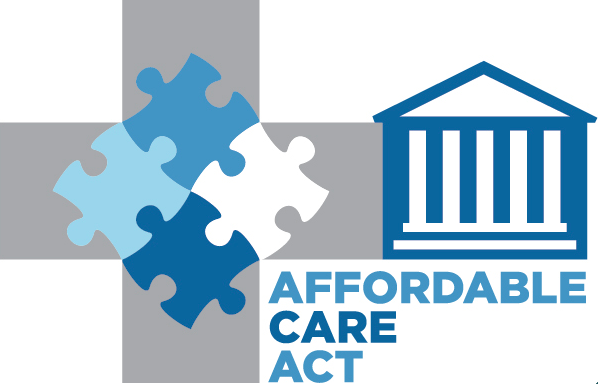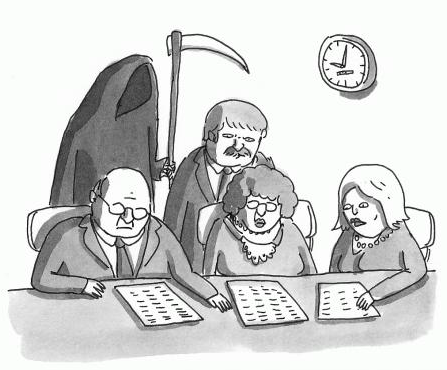‘Your Mom is So Fat…,’ or Talking Politics on the Internet
Hollis Griffin / Denison University

A few months ago, in the middle of the partisan brouhaha over the Affordable Care Act—a.k.a. “Obamacare”—I got into an extended Facebook argument with an old friend’s mother. Though I’m wary of casting political identifications in stark binaries, I am a left-leaning, thirtysomething academic and my pal’s mother is a right-leaning, religious retiree. Her child/my friend posted something on Facebook about the cost of the family health insurance policy going up and, predictably, mayhem ensued. The long, heated conversation on the post’s comment thread quickly descended into finger-pointing and name-calling. Had it not been a public discussion, it almost definitely would have descended even further. “Your mom is so fat…” and “Come say that shit to my face” were not that far off.
At some point, that conversation wound down to involve just the two of us, me and my friend’s mom. I have known this person for twenty-six years, so ours wasn’t a snarky exchange between strangers. My naïve optimism had convinced me that I could change her mind about health care reform. Whereas I worry about going bankrupt from the cost of prescriptions, she is adamantly opposed to any kind of health care reform at all. I thought that with dispassionate reasoning and levelheaded conversation, I could “make her see the light.” I responded to her anxieties about “death panels,” her criticism of the undeserving poor, as well as the vitriol she feels for President Obama. I tried to be even-handed and respond with facts, telling her about the 80/20 rule, the legislation’s exemptions, and the underside of capping malpractice claims. The conversation went on for hours, fifty-seven comments in all. I kept at it because I thought that we could arrive at some common ground if I was persistent and persuasive. And, for whatever reason, I felt compelled to arrive at some sort of consensus. But nothing worked.
After a while, the conversation devolved into parody. That moment occurred when my friend’s mom posted that she was worried about community organizer Saul Alinsky’s influence on President Obama’s political philosophy. While Alinsky’s been dead for decades, he has become a villain in conservative circles because President Obama respects his views on protest. Of these views, the one I find to be rather hilarious was Alinsky’s plan to have protestors eat lots of beans, gather in a governmental building, and fart—literally fart—to express their discontent. Because I was aggravated and am more obnoxious than I should be, I asked my friend’s mom if she was worried about the President farting at her. She, in turn, wondered where I developed my political beliefs, suspecting that they were the result of brainwashing by liberal college professors. (She momentarily forgot that I am one such offender.) From there, my friend’s mother suggested that “the liberals” were planning an overthrow of the American government. I contemplated asking her if this revolution would take place by way of a well-coordinated, collective expulsion of gas from liberal rectums. Maybe it would topple the White House! Maybe it would level the Pentagon! The whole conversation had gotten so ridiculous that part of me was tempted to see what else I could egg my friend’s mom into posting. But I am not that malicious, so I let the comment thread die.
There are many conclusions one could draw here. It might follow that my friend’s mom is probably racist, definitely paranoid, and nothing if not extremely hostile toward the poor. One might conclude that I am a mean, arrogant, overeducated jackass who is so steadfast in his moral certitude that he is incapable of understanding other points of view. One could also deduce that political dialogue has become so partisan and divisive—hinging on the allegedly neat, clean binary between “liberals” and “conservatives”—that meaningful conversation on the internet is inconceivable, even laughable. Another way of seeing these events is to dismiss them out of hand. Such discussions are almost completely disconnected from the real business of politics as it is carried out in the legislative and judicial processes.1 From that vantage point, engaging in such conversations is as stupid as it is pointless.

In the few months since this all occurred, I have had each of these thoughts, many times over. When all is said and done, I am mostly just sad that two people who have known one another for such a long time can so pointedly, fundamentally disagree about something so important. Because it really does seem that health care is a matter of life or death. The Affordable Care Act—however limited in scope, market-friendly in nature, and bungled in its enactment—increases the number of people who might receive health care when they need it. In that sense, the ACA increases the number of people who can go on living. Surely this can’t be a bad thing. As self-interested as people can be, it feels like a different debate when health care reform is framed as a matter of life or death. One can be suspicious, wary, or frightened of other people, but it seems many steps beyond that to be indifferent to their deaths. More often than not, it seems that the evolutionary ethos of late capitalism—“eat or be eaten”—has so permeated public life that Americans imagine themselves as living in The Hunger Games. Many of us think we’re fighting each other to the death over scarcer and scarcer resources. Here, race becomes the boogeyman for economic inequality. The party line is: “I’m paying for them. And I shouldn’t have to because I can barely take care of myself.” In many ways, health care is framed as a matter of life and death. But it’s often done so in a way that prompts survivalist instincts, not generous ones.
I’ve been thinking about why people talk about politics on the internet, trying to figure out the pleasure in it. Why do people bother sniping at one another on Facebook when it isn’t likely to change anything? Because I think that most people feel that way. It seems that snide, accusatory flame wars make the most sense if considered in terms of Hunger Games-like scarcity. While not uniformly post-apocalyptic in nature, the lived, felt, experiences of the underclasses are rather profoundly characterized by lack and decay. In the face of growing income inequality, a rising cost of living, and a dramatic decrease in employment opportunities across many different sectors, shortage and decline are the fundamental experiences of the un- and underemployed, the working poor and, increasingly, many people who have long thought of themselves as being of the middle class but can do so no longer. Lauren Berlant calls the situation of such groups a “slow death,” the “physical wearing out of a population in a way that points to its deterioration as a defining condition of its experience and historical existence.”2 In such a context, she wonders about the forms of agency such populations can enact when it seems as though—and so many feel as if—they are marked for death, both by a government in bed with corporations and corporations that are as indifferent to their well-being as they could possibly be.
Berlant uses the idea of a “lateral agency” to think about individuals’ small, day-to-day actions as potentially creating a sense of validation and comfort for them. Lateral agency is a way of making do and getting by; it isn’t transformative or revolutionary in the traditional sense. Lateral agency doesn’t change anything, per se, especially because so many of the populations characterized by slow death feel—and, too often, are—powerless to alter their circumstances all that much. Lateral agency is “a form of ballast against wearing out, …small pleasures…[that] can produce an experience of self-abeyance, of floating sideways.”3 I see talking politics on the internet as one such form of agency. It’s a cathartic outlet for people who are angry about income gaps and their lack of mobility, horrified by what they see as corporate malfeasance and government indifference to the dire straits of so many Americans. In that sense, its no wonder internet political chatter frequently ends in name-calling and finger-pointing. If you feel like you’re fighting for your life and you are relatively confident that those with the power to change that aren’t listening, how could it not? At the same time, the very act of doing it, of lashing out at those who disagree and finding support from those who “like” your posts, offers some sense of comfort and belonging.
It goes without saying, perhaps, that the internet is not the site of realpolitik. Nevertheless, it is still a place where people go to vent, seek validation, and engage in debate. In that sense, weighing in on health care reform by saying “your mom is so fat” isn’t “productive,” in the conventional sense of the term. Regardless, it is a way of treading water. When people feel as though they’re drowning, I don’t know that I can begrudge them that. I just don’t know that I can participate in it, myself. I can appreciate the desire for catharsis and envy the lack of self-censor, but talking politics on the internet doesn’t make me feel better, even momentarily. I find it deflating, even as I often feel compelled to do it. And, so, the question remains: how can the affective politics of the internet better connect to the more material politics of the legislative process?

Image Credits:
1. Angry Internet User
2. Affordable Care Act Logo
3. Death Panels Cartoon
Please feel free to comment.
I am really intrigued by this notion of lateral agency as a scholarly term for what might otherwise be described as self-congratulatory or narcissistic behavior. Until recently, I hadn’t understood the appeal for getting engaged in lengthy online debates about political issues, particularly on facebook where you are guaranteed to bash heads with people you’ve never met, friends of your friend who started this whole mess by posting an article or declarative status in the first place. It all just seemed like grandstanding to me, a place to show your friend and strangers how well-informed (you think) you are, or how liberal or righteous or intelligent.
Then I noticed a facebook debate growing between a woman from my congregation and two men (one the former head of said congregation). While still a devout person, this woman has been getting increasingly vocal about her liberal viewpoints, which were highlighted in the article she had posted and which these men were lengthily taking her to task for. Instinct told me to just keep scrolling and look at the more innocent and less controversial posts my other friends had been contributing, but I couldn’t help myself from going back and reading what was going on with these three. I was so proud of her for how articulate her comments were, running circles around these men who kept circling back to the same rather close-minded arguments. When one of them posed what was probably a rhetorical question that my friend had yet to respond to, I found myself jumping in.
I didn’t last very long – it was exhausting trying to argue with what is essentially a wall – and I have no illusions about changing anyone’s mind. Politically speaking, yes, it was treading water. But for me personally, it was an affirming victory. My personal progress felt more akin to having just swam a marathon. These men know me fairly well, and they probably made assumptions about where I would stand on certain issues. Now they know a little more about what how much I can take, and they also know this about other people from our congregation who were responding. While this might create some tension on Sunday, I like to hope that maybe it will help facilitate some offline discussion. If that’s too optimistic as well, I do consider it at least a minor victory that these men now know for a fact that they can’t speak for a whole congregation.
Thank you for your article. The internet, as the most important new forum for previously unheard voices, is certainly a site worthy of detailed study. Your assessment of the causes of vitriolic arguments finding a home on the internet as a weak flexing of lateral agency, seems a good one to me. You end your article with the question of how to more effectively connect actual legislative politics with the voices of the people for whom politics claims to be working. Perhaps one way to make this connection is to look at the very particular constituents of internet “speaking”, in order to assess, and maybe elevate it.
Internet discourse has several key characteristics. It is usually (not always):
-Short
-Transient
-Semi-Anonymous
-Distant
Depending on the different forums, comments on the internet are limited in length, they effectively disappear after a short time (often because something else comes along to bump it from the top feed), the commenters are only as identified as they choose to be, and they are almost never in real proximity to the person with which they are debating.
This set of circumstances is analogous to the condition of being in a car, in traffic, when someone cuts you off. When driving, an interaction with another driver is almost always short, transient, anonymous, and separated by at least the distance of your car to theirs. With these preconditions, otherwise rational, reasonable people are liable to curse and rage with an almost insane fervor. Like they do on the internet.
The solution, it seems to me, is simple enough though…Louis CK makes the point well during one of his standup bits: He notes that never in a million years would he turn to someone in an elevator and call out to them, “Hey, fuck you! Worthless piece of shit” like he has in traffic. In the car, he says he has a ‘different set of values’ created by the different preconditions of car travel. Likewise on the internet, people are liable to aggressive outbursts because of the its structure. The answer then, is to try make political spaces on the internet more like elevators, and less like cars in traffic. Bring people closer together, remove their anonymity through personal connection, give them the space and time for comments to linger and percolate in the opposing thinker’s mind, and when possible, technologically, bring them closer to each other – through VOIP, Webcams, or some form of virtual reality. Because, as Louis CK says, most people are pretty much OK, but in certain circumstances, the worst is brought out. Change the circumstances, and perhaps we’ll change the results…